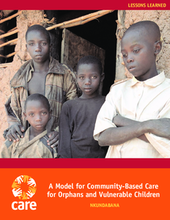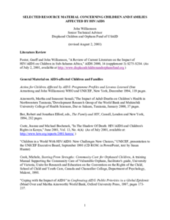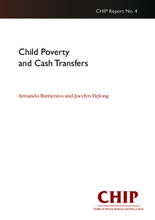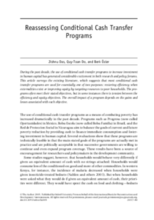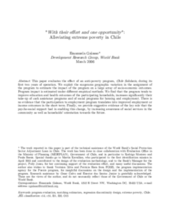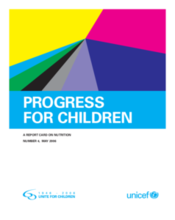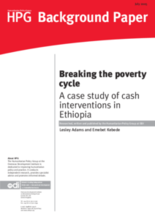Displaying 221 - 230 of 262
A lessons learned document reviewing impacts of a community-based care and mentoring program for child-headed households in Rwanda.
An updated list of literature and bibliographies concerning children and families affected by HIV/AIDS around the world. Most of the resources are focused on sub-Saharan Africa.
This paper examines the effectiveness of targeted cash transfers programs on reducing childhood poverty. It also explored the comparatives effectiveness of different kinds of cash transfers.
This article reviews the existing literature on conditional cash transfer programs around the world. It urges the careful consideration of multiple factors in program planning and policy making to achieve successful long-term outcomes.
Evaluates the effect of an anti-poverty program, Chile Solidario, during its first two years of operation. Estimate the impact of the program on a large array of socio-economic outcomes including education, health, housing, and employment. Finds also suggest the key role that psycho-social support had in enabling this change, by increasing awareness of social services in the community as well as households’ orientation towards the future.
Evaluates global improvements in nutrition as progress towards achieving the Millenium Development Goals (MDGs). Suggests that the MDGs are attainable only with re-prioritization of efforts to reduce child undernutrition.
A survey of caregivers designed to assess barriers and incentives to fostering in rural Zimbabwe. Suggests that incentives for sustainable orphan care should focus on financial assistance.
A report on several pilot projects launched by the World Vision and affiliated microfinance institutions to address the association between poverty and HIV. A description of pilot projects in Zimbabwe, Uganda, South Africa and Malawi are discussed.
This paper examines childcare policy in Mozambique. It finds that vulnerability increases when orphans are placed in resource-poor kinship care arrangements.
This paper examines the role, process and impact of cash transfer interventions in Ethiopia using several case studies. Challenges and recommendations for future cash interventions are discussed in-depth.

